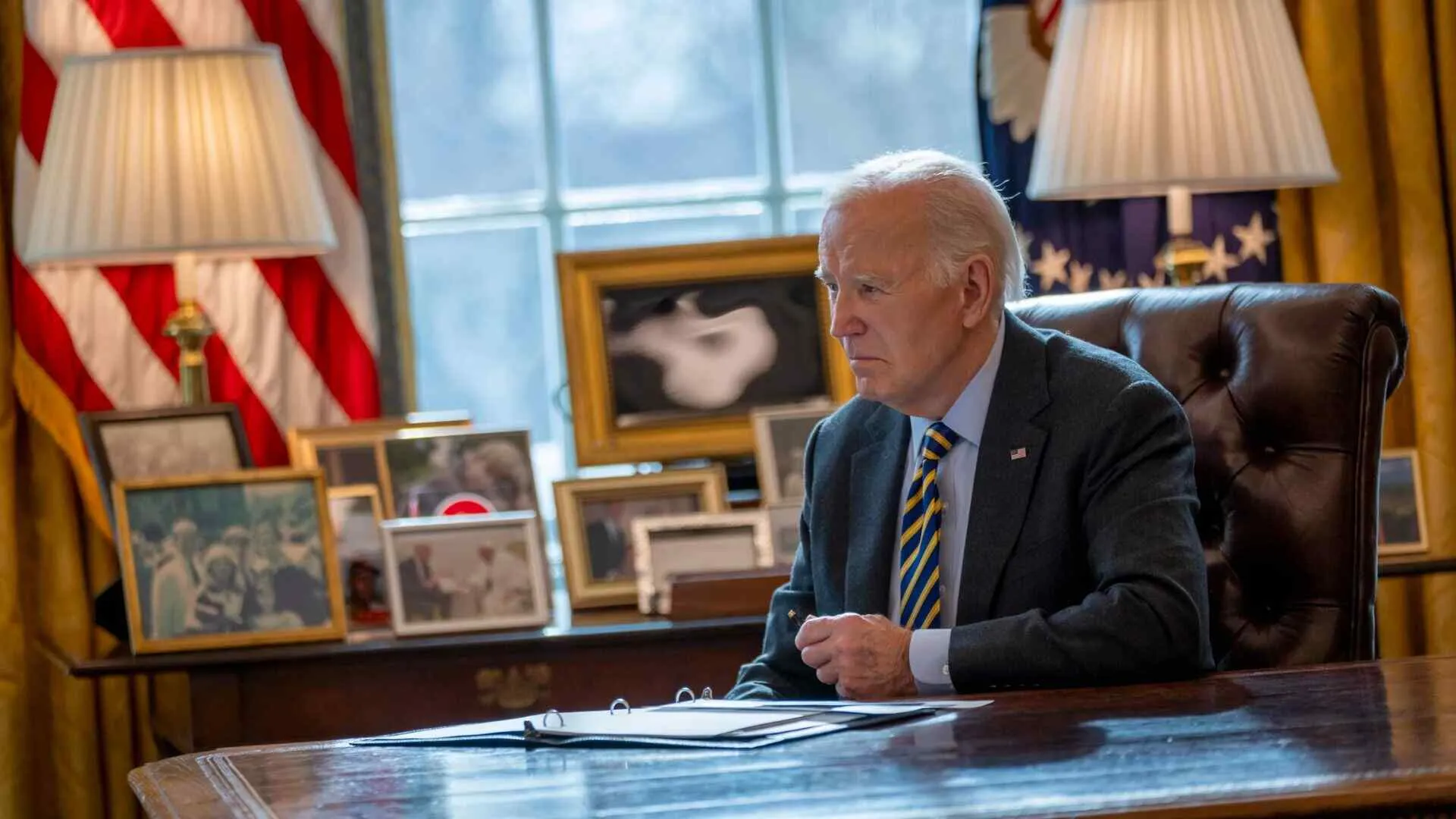The concept of a Uniform Civil Code (UCC) has been a subject of considerable debate and deliberation, both within and outside the legal and academic circles. It refers to a set of laws governing personal matters, such as marriage, divorce, inheritance, and adoption, which are applied uniformly to all citizens, regardless of their religious or cultural affiliations. While several countries around the world have implemented a UCC, its implementation remains a contentious issue in many diverse societies.
It has its roots in the principle of secularism, which separates religion from the affairs of the state. Proponents argue that a UCC promotes social cohesion, gender equality, and uniformity in the application of laws, while critics express concerns about potential infringement on religious freedom, erosion of cultural identities, and the need to respect and accommodate diverse practices.
Uniform Civil Code (UCC) finds its place within the Directive Principles of State Policy (DPSP) in the Indian Constitution. The DPSP is a set of guidelines and principles that direct the government in its policymaking and aim to promote social justice, equality, and the welfare of the citizens.
Article 44 of the Indian Constitution, which is a part of the DPSP, specifically addresses the UCC. It states: “The State shall endeavor to secure for the citizens a uniform civil code throughout the territory of India.” This provision reflects the vision of the framers of the Constitution to establish a common set of laws governing personal matters for all citizens, irrespective of their religious or cultural backgrounds. The inclusion of the UCC in the DPSP signifies the constitutional recognition of the importance of a uniform legal framework that upholds principles of equality, non-discrimination, and justice. It highlights the aspiration to move away from the existing personal laws that vary based on religious practices and create disparities in matters such as marriage, divorce, inheritance, and adoption.
Historical Context:
During British colonial rule in India, a diverse set of personal laws based on religious practices were recognized and enforced for different communities. These personal laws governed matters such as marriage, divorce, inheritance, and adoption. The British administration adopted a policy of non-interference in religious matters and allowed communities to follow their laws.
After India gained independence in 1947, the framers of the Indian Constitution faced the challenge of creating a legal framework that would accommodate the country’s religious and cultural diversity while promoting principles of equality and justice. The debates and discussions surrounding the formulation of the Constitution provided an opportunity to address the issue of personal laws and the idea of a UCC. The framers of the Constitution recognized the need for a uniform legal framework to foster national unity, social harmony, and gender equality. Article 44 of the Indian Constitution, which falls under the Directive Principles of State Policy, explicitly mentions the objective of securing a UCC for all citizens throughout India. This provision reflects the influence of various social reform movements and the vision of leaders who sought to establish a common set of laws to govern personal matters.
Prominent voices in support of a UCC included Dr. B.R. Ambedkar, who was the Chairman of the Drafting Committee and a leading architect of the Constitution. He argued that the implementation of a UCC was essential for eradicating social inequalities and securing the fundamental rights of individuals, especially women. Ambedkar viewed a UCC as a means to uplift marginalized sections of society and promote social reform. On the other hand, there were members of the Constituent Assembly who expressed reservations and concerns about implementing a UCC. They emphasized the importance of preserving religious freedom and cultural diversity. They argued that personal laws were deeply ingrained in religious traditions and should be respected and protected. These members contended that imposing a UCC might lead to social unrest and undermine the rights of religious and cultural minorities.
Ultimately, the Constituent Assembly decided to include Article 44 in the Directive Principles of State Policy, which recommended the implementation of a UCC. However, it was made non-enforceable and left to the discretion of the government to enact the necessary legislation. This approach reflected a recognition of the complexities involved in implementing a UCC and the need for a cautious and gradual approach. The Constituent Assembly debates on the UCC continue to be a significant reference point in the ongoing discussions and deliberations on the topic. The views expressed during those debates provide insights into the diverse perspectives, challenges, and aspirations surrounding the implementation of a UCC in India.
Comparative Study; An International Perspective:
A comparative study of countries that have implemented or explored the concept of a Uniform Civil Code (UCC) can provide valuable insights into the potential benefits and challenges associated with its implementation. By examining the experiences of different nations, one can gain a broader understanding of the approaches taken, the outcomes achieved, and the lessons learned.
France: France is often cited as a country that has successfully implemented a UCC. The French Civil Code, which was established in the early 19th century, provides a unified legal framework for personal matters. Comparative studies explore the historical development, legal principles, and social impact of the French Civil Code, offering insights into the potential benefits and challenges of a UCC.
Turkey: Turkey’s legal system underwent a significant transformation under Mustafa Kemal Atatürk’s reforms in the early 20th century. These reforms included the adoption of a UCC, which abolished Islamic family law and introduced a secular legal framework for personal matters. Comparative studies on Turkey’s experience provide insights into the challenges faced, the societal impact, and the ongoing debates surrounding the UCC.
Tunisia: Tunisia is another country that has implemented a UCC in the context of its post-independence reforms. Comparative studies analyze the Tunisian experience, exploring the historical and legal factors that influenced the adoption of a UCC, its impact on gender equality, and the challenges encountered in its implementation.
Egypt: Egypt has also undergone discussions and reforms related to personal laws and the potential implementation of a UCC. Comparative studies examine the Egyptian legal system, the role of Islamic law, and the debates surrounding the UCC, offering insights into the challenges and considerations in a predominantly Muslim-majority country.
These are just a few examples, and a comprehensive comparative study may include additional countries such as Algeria, Morocco, Indonesia, and others. Such studies analyze the historical, cultural, legal, and social contexts of these countries, comparing their approaches to personal laws, their experiences with a UCC, and the outcomes and implications of their legal reforms.
Judicial Pronouncements:
There have been several judicial pronouncements in India regarding the Uniform Civil Code (UCC). These pronouncements have provided interpretations and guidance on the constitutional provisions related to the UCC and have influenced the ongoing debates and discussions surrounding its implementation.
Mohd. Ahmed Khan v. Shah Bano Begum (1985 AIR 945, 1985 SCR (3) 844): This landmark case by the Supreme Court of India addressed the issue of maintenance rights for divorced Muslim women. The court held that Muslim women are entitled to maintenance beyond the period of iddat (a waiting period after divorce) under Section 125 of the Code of Criminal Procedure, regardless of personal laws. The judgment emphasized the need for gender justice and highlighted the importance of a UCC to ensure equality and non-discrimination.
Sarla Mudgal v. Union of India (AIR 1995, SC 1531): In this case, the Supreme Court examined the issue of bigamy and conversion to Islam for the purpose of contracting a second marriage. The court held that a Hindu husband, who converts to Islam without renouncing his first marriage, cannot marry again. The judgment reiterated the need for a UCC and highlighted the importance of a common law governing marriage and divorce to promote social justice and gender equality.
Lily Thomas v. Union of India (AIR 2000 SC 1650): This case dealt with the issue of bigamy and misuse of religious conversion to circumvent the legal consequences of multiple marriages. The Supreme Court held that a person cannot escape the consequences of a criminal act (bigamy) by converting to another religion. The court emphasized the need for a UCC to address inconsistencies and discriminatory practices arising from personal laws.
John Vallamattom v. Union of India (W. P. (Civil) 242 of 1997:): In this case, the Supreme Court examined the validity of Christian personal laws concerning divorce and inheritance. The court upheld the constitutional validity of these laws but emphasized the need for reforms to ensure gender equality. The judgment highlighted the importance of a UCC as a means to eliminate discriminatory practices in personal laws.
Shayara Bano v. Union of India (AIR 2017 9 SCC 1): This significant case challenged the practice of instant triple talaq (talaq-e-Iddat) in Muslim personal law. The Supreme Court declared the practice unconstitutional and violative of the rights of Muslim women. The judgment reiterated the need for a UCC to ensure gender equality and protect fundamental rights.
It is important to note that while these judicial pronouncements have addressed specific issues related to personal laws and gender equality, they do not provide a comprehensive directive on the implementation of a UCC. The courts have highlighted the importance of a UCC in ensuring equality, non-discrimination, and gender justice.
Recent Developments:
It is worth mentioning here that the Law Commission of India has initiated a consultation process on the implementation of the Uniform Civil Code and invited the general views of the public & recognized religious organizations, however, the 21st law commission also examined the same issue in 2018, and it was concluded that “UCC is neither necessary nor desirable at this stage in the country.” The Law Commission further discussed cultural diversity and plurality in the Nation. It was also mentioned that “differences don’t always imply discrimination.”
Prime Minister advocated the need for UCC in one of the recent public gatherings while mentioning minority appeasement can’t be a constant practice for elections, it is high time for our democracy to come out of freebies policies and take steps for strengthening our constitutional values. Meanwhile, Uttrakhand has drafted the proposed UCC bill for the state.
It would be interesting to watch how BJP will manage to pass the Bill in the Upper house of the Parliament as they don’t have the majority in the upper house, many opposition leaders including AAP, BSP has supported the idea and they are willing to take part in the discussion, many political pundits believe AAP may support this initiative and may negotiate regarding Government of National Capital Territory of Delhi (Amendment) Ordinance, 2023 which overturned the Supreme Court’s verdict.
Challenges:
The implementation of a Uniform Civil Code (UCC) is not without its challenges. These challenges stem from various factors, including religious, cultural, legal, and social considerations. Here are some key challenges associated with implementing a UCC:
Religious and Cultural Sensitivities: Personal laws are deeply rooted in religious and cultural practices, and any attempt to replace them with a common civil code can be seen as an encroachment on religious freedom and cultural autonomy. Resistance from religious communities, who view personal laws as an integral part of their identity and religious practices, poses a significant challenge to the implementation of a UCC.
Constitutional Considerations: Constitutional provisions guarantee the right to religious freedom and protect the rights of religious and cultural minorities. Implementing a UCC must navigate these constitutional considerations to ensure that the principles of equality and justice are upheld without infringing on individual and community rights.
Political Opposition: The implementation of a UCC is often a highly politicized issue. Political parties and leaders may oppose or support the UCC based on their electoral calculations and ideological stances. Political resistance and polarization can impede the progress toward implementing a UCC.
Socioeconomic and Regional Disparities: India is a diverse country with significant socioeconomic and regional disparities. Implementing a UCC would require addressing these disparities to ensure equal access to justice and legal protections for all citizens, regardless of their background or location.
Gender Justice and Equality: One of the main objectives of a UCC is to promote gender equality and eliminate discriminatory practices prevalent in personal laws. However, achieving gender justice through a UCC requires careful consideration and understanding of the intersectionality of gender, religion, and culture.
Implementation and Enforcement: Implementing and enforcing a UCC across a vast and diverse country like India poses practical challenges. Building the necessary infrastructure, training legal professionals, and ensuring uniformity in the application of laws can be a complex and resource-intensive process.
Please read concluding on
link4din.com/guardians-numeric-wisdom

















